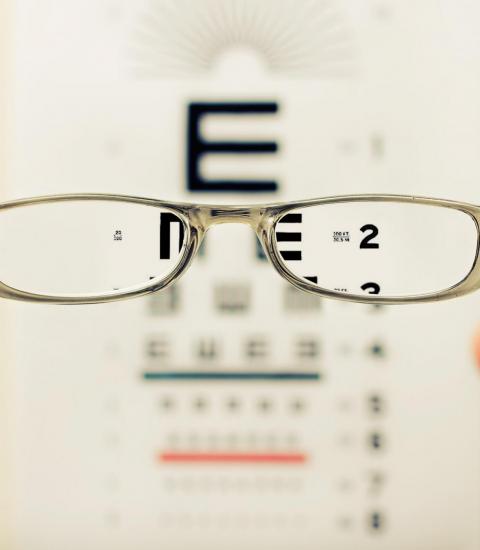
It’s very difficult to imagine how another person sees the world. In fact, it is quite normal to assume that everyone else can see the same way that you do. Therefore, you may be astounded to discover that when a friend takes off their spectacles, they can’t see the clock on the wall that to you is perfectly clear. (Conversely, if you are the friend who wears spectacles, you might be astounded that someone can see so well without an optical aid!)
No spectacles - a leading cause of blindness in the world
Uncorrected refractive error (that is, not having spectacles or contact lenses to correct vision, or having spectacles / contact lenses with an incorrect prescription) is one of the leading causes of blindness in the world.
Naidoo and co-authors1estimate that 108 million people worldwide were blind or vision impaired in 2010 due to uncorrected refractive error. This is equivalent to 1 person in 90.
Incredibly, these estimates are not confined to developing countries with limited eye care services. For example, in North America, uncorrected refractive error accounted for 48.1% of all people with moderate to severe vision impairment (visual acuity less than 6/18, but better than 3/60) and 14.1% of people classified as blind (visual acuity less than 3/60)1. Similar figures are reported for Australasia (47.1% and 14.1%) and for Western Europe (47.3% and 14.0%)1.
The people classified as vision impaired or blind in these statistics could easily restore their vision with an up-to-date pair of spectacles or contact lenses.
Why do people persist with poor vision?
There are many reasons people do not wear an up-to-date pair of spectacles or contact lenses. For example:
- They do not realize that they have a problem. They think it is normal to see what they see.
- They perceive that it will cost too much money or take too much time to fix.
- They do not know how to access eye care services.
Good vision at work
The cause of poor work performance may be varied and complex. However, in some cases, the solution could be as simple as obtaining an up-to-date vision correction.
Uncorrected refractive errors are easy to detect in a regular eye examination. Correcting a person’s vision can improve performance of visual based tasks and can assist with mobility.
Don’t assume that everyone sees the world the same way you do.
References
1. Naidoo et al (2016) Global vision impairment and blindness due to uncorrected refractive error, 1990 – 2010. Optometry and Vision Science 93(3): 227-234.
